当日発送について
以下の条件に該当するご注文を当日配送いたします。
・平日(営業日)の12時までにご注文が完了。
・ご注文いただいた商品の在庫がすべてある場合。
・お支払方法がクレジットカード決済か代引きの場合。
※受注状況や確認事項の有無などにより、お時間をいただく場合がございます。
※12時以降のご注文は最短で発送いたします。
定休日のご案内
土日祝日、お盆、年末年始などは出荷業務をお休みいたします。
Now Loading...
以下の条件に該当するご注文を当日配送いたします。
・平日(営業日)の12時までにご注文が完了。
・ご注文いただいた商品の在庫がすべてある場合。
・お支払方法がクレジットカード決済か代引きの場合。
※受注状況や確認事項の有無などにより、お時間をいただく場合がございます。
※12時以降のご注文は最短で発送いたします。
土日祝日、お盆、年末年始などは出荷業務をお休みいたします。
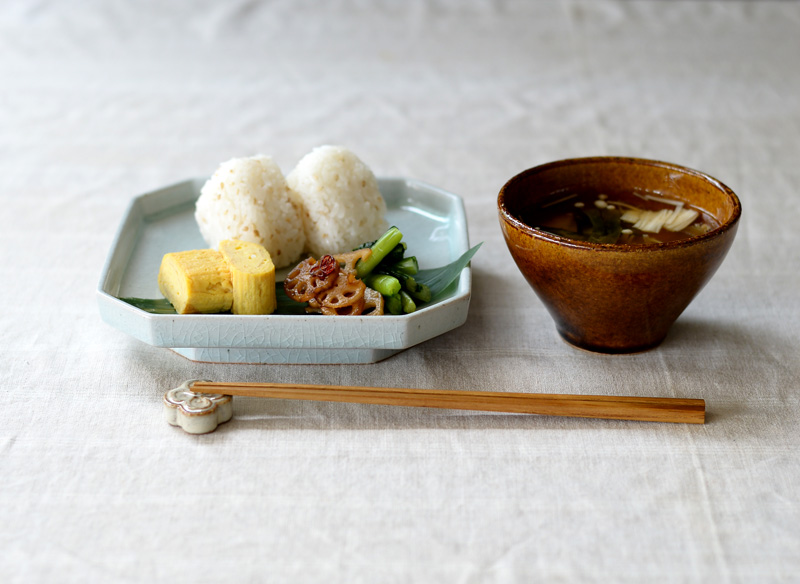
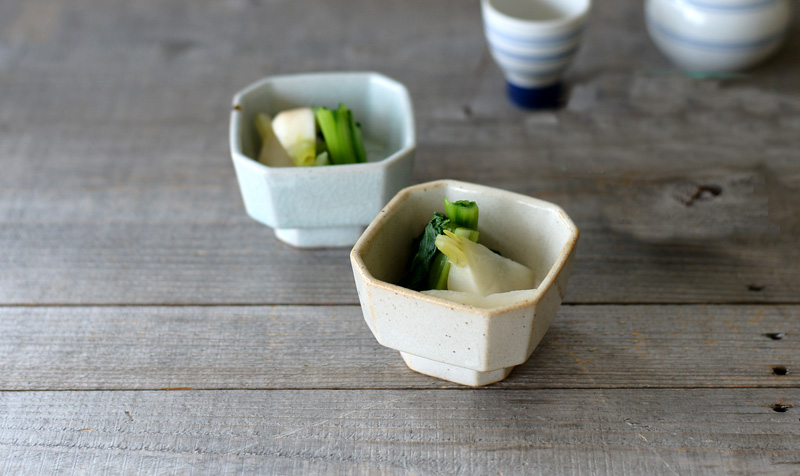
ちょっと特別な日
ご近所さんに頂いた釣りたての鯵を新鮮なうちにさばいてお造りにする。
還暦祝いに色鮮やかな具材のちらし寿司をつくる。
時間をかけてふっくらつやつやの黒豆を煮る。
久しぶりに会う親戚に山菜の天ぷらをもてなす。
そんなちょっと特別な日の料理や食卓をイメージして作られたペイヴ。
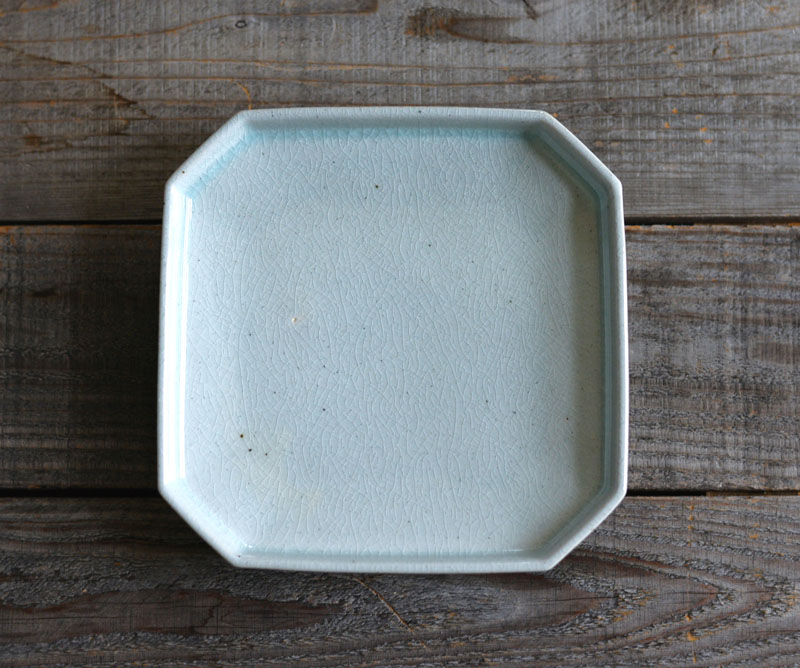
ペイヴの形状は家紋などにも取り入れられている隅切り角という伝統的な形です。
凛とした佇まいは、盛り付けた料理をキリッと引き締め、上品な表情にしてくれます。
直線だけで構成されたシンプルな角型ですが、随所に小さなこだわりがあり、
各辺はほんのわずかに弧を描くように外側へ膨らんでいます。
そうすることで硬い印象の中にもおおらかな広がりを感じます。
また、高台にすることでテーブルと皿の間に空間ができ、きちんとした感じと清々しさが生まれ、
特別な日のテーブルや料理と相性のよいフォルムです。
角皿の料理を盛る面は真っ平らではなく中央が少し低くなっています。
汁やソースが広がりにくく、美しい盛り付けができます。
色は生成、青磁、濃藍(こあい)の3色展開です。
素材は温かみや柔らかさを感じるような少し黄味がかった土。
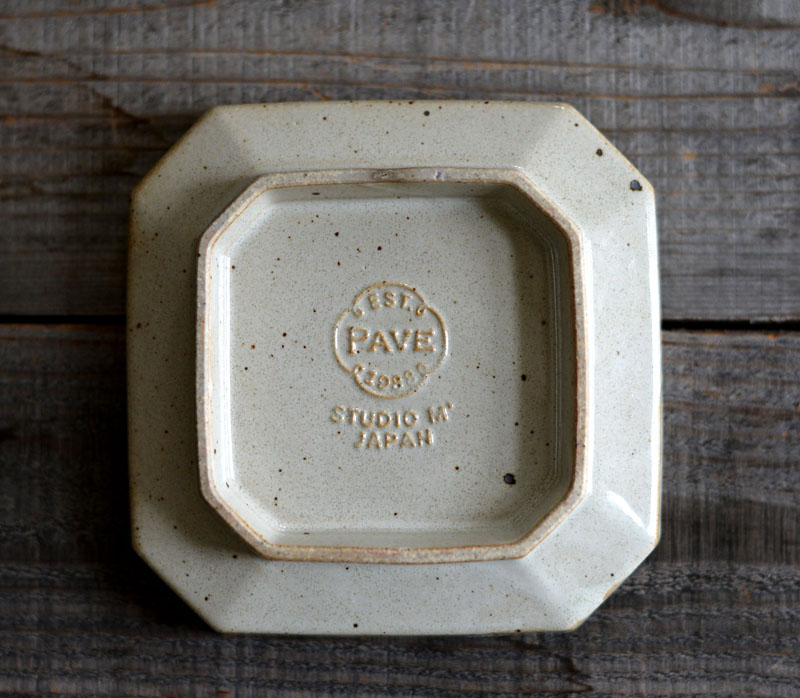
〈生成〉
生成はクリームのような滑らかな質感の中に釉が薄くなった部分の焦げ感や鉄粉がはっきりと浮かび上がり味わいがあります。
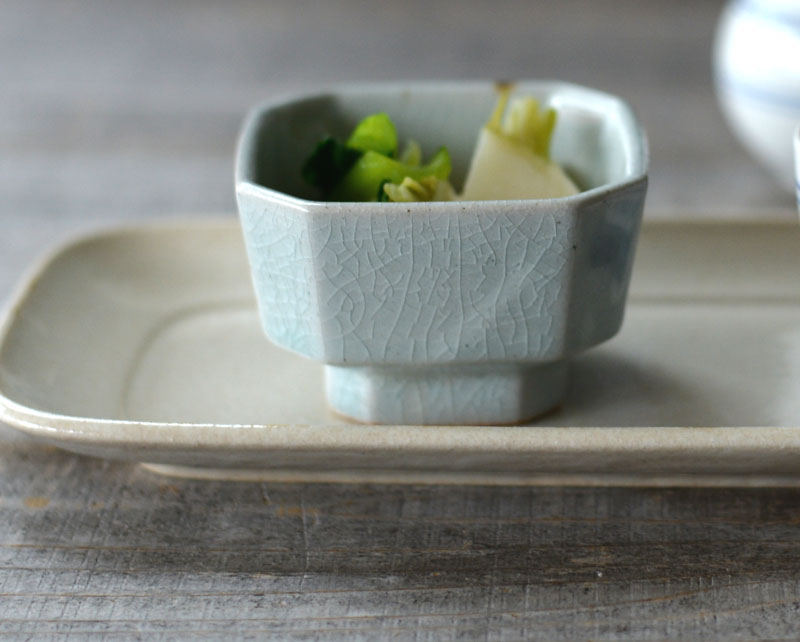
〈青磁〉
白化粧を施した青磁はガラスのように透き通った淡い水色が瑞々しい印象です。貫入が入っており、使っていくうちに変化する貫入の模様にも愛着が持てます。
〈濃藍/こあい〉
濃藍は釉の溜まった部分と流れて淡くなった部分が迫力あるコントラストになっています。同じ器の中でも釉の濃淡が大胆にあらわれて、動きのある表情に引き込まれます。
6寸皿は主菜用として、4.5寸皿は取り皿や和菓子、3寸小鉢は和え物など、基本的な和食が盛り付けやすいラインナップです。
きちんとした空気感のあるペイヴは、つくる人それぞれの思いが詰まった料理を受け止め、特別感をさらに盛り立ててくれます。